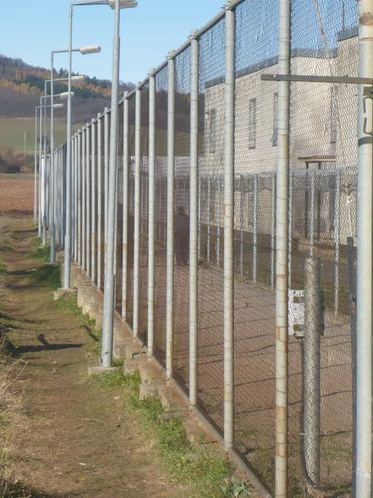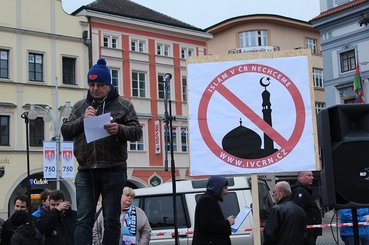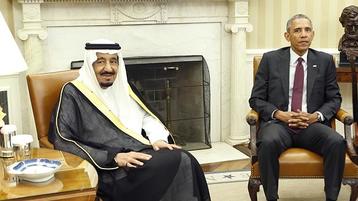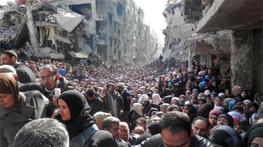 Eighty-five miles outside of Prague, there is a small town called Drahonice. There is nothing of note there except for an ex prison, which is currently being used to detain around one hundred refugees. It is a detention the refugees obviously do not wish for, but one, which they must pay for themselves. A daily fee of around 270 Kc (£7) is either taken off them or billed to them on their release. There is no logic in locking these people away. It is a pointless exercise; none of them face charges and on their release, the Czech authorities simply wash their hands of them and move them on, allowing them to continue their journey to wherever they were originally headed. The detention centre recently made local headlines after dozens of refugees staged a hunger strike, and a few self-harmed with broken glass. The protest has now ended and calm has been restored, but the outcome for the detainees remains the same: They are still imprisoned; they still do not know why they are being held, or when they will be released. Two fences, the inner one topped with coils of barbed wire, surround the prison and guards with dogs patrol the perimeter. Three types of authority guard the facility: contracted security guards, regular police and the prison wardens themselves, somewhat extreme for a prison population of so few and who face no charges. We were held in a cold waiting room for two hours, a wait longer than the car journey itself. The reason, for the delay we were told, was there had been rumours of an escape and so they had to complete a head count. I wondered whether this was true or merely a tactic to induce stress on the visitors, to deter them from future visits. The search we were subjected to before entering was that of one of a maximum security prison whilst the decor inside resembled a primary school. Hand drawn pictures adorned the walls of the corridor that led to the rooms where we would meet the refugees. Pictures depicting peace and tranquillity, pictures that did not belong in the scenario the refugees now find themselves in. As this was the first time these paintings had apparently been on show, and the fact one of them was signed by a female, in an all-male prison, they were met with suspicion. A PR stunt for the visiting lawyers perhaps? The meeting room was uninviting and bore all the hallmarks of an abandoned property. A table and chairs were provided but there were no refreshments on offer for either visitors or captives; I don’t think any of us were particularly welcome. Through the window we could see the hospital wing and a concrete football pitch that the refugees are allowed to use, but nobody does. The first refugees I met were Aarif, an Afghani, and two Pakistani men, Jamil and Nadim. Not their real names, their names have been changed to protect identity. They were arrested on a train at Prague and had been locked up for four months. Their appearance seemed OK physically but the psychological strains of their situation were evident. Aarif told us he had been an interpreter for the allied forces during the invasion of his country, and like many others, he was abandoned once the decision was made to pull out the troops. Facing the likelihood of retribution from the Taliban, he had little choice but to flee. I met a fifteen-year old boy. A child locked up in a world that no man deserves to be in. Told to lie about his age to the authorities, and with no documents to prove otherwise, he is treated like an adult and so remains incarcerated. He has been at Drahonice for three months and has just had his sentence increased by another three. He doesn’t know why. No one does. The criteria for release are purely random here. I asked about their wellbeing and was told that although there are no real physical attacks by the guards, every three or four days, they are woken in the middle of the night and forcefully spread-eagled against the wall. They are kept in these stress positions for up to half an hour whilst searches are carried out. No one is certain what the guards are searching for. It is after all, nigh on impossible for anything to be smuggled into the prison, and the searches are more frequent than the visits. It is a harsh scenario that the refugees find themselves in and one that makes no sense other than to deter further refugees entering the Czech Republic, and with only two out of approximately six hundred refugees travelling through the country applying for asylum, it appears the tactic is working; however wrong that is. By Lee Wright Also: People helping refugees in the Czech republic Lee is currently working in Belize doing an internship with an NGO. He is looking for a career change from a financial background and into writing. You can find Lee on twitter @leeroyjw and at his online blog here Amnesty highlights Czech treatment of refugees
2 Comments
Above-Czech volunteers and an anti-refugee protest - the good eggs and the bad apples  The dark side of the Czech Republic’s feelings towards refugees is well documented. Recently, Miloš Zeman, the Czech Republic’s president, has likened the refugee crisis to an illegal invasion, and has even crazily suggested that troops be deployed to drive them back. Thousands of people across the Czech Republic took to the streets in protest, not at their leader’s idea of fighting fear with fire, but to demonstrate against the refugees entering their country. Zenman also attended an anti-Islam protest and even took to the stage to tell the thousands gathered, that those against Islam and refugees should not be branded racist. Czech police made headlines with reports that they have been marking the refugees with numbers as they arrest them on trains, a move that has been likened to Nazi Germany’s treatment of Jews en route to the concentration camps. The detention centres have also come under fire recently. Anna Sabatova, the Czech Ombudswoman described the conditions as being so bad, they violate the Convention on Fundamental Human Rights and Freedoms as well as the Convention on the Rights of the Child. Anna recently told a press conference – “The children are traumatised by seeing their parents being transported to the facility in handcuffs and by being kept behind a four metre-high fence with barbed wire. What we also see as unacceptable is the evening counting of inmates, which involves waking the children up if they have already gone to sleep. A recent poll carried out by the Czech Academy of Sciences, found that almost 70% of the Czech population are opposed to refugees entering their country, and there have even been reports of people being attacked for offering support to refugees. One such victim was simply defending the services of a café that publicly displayed solidarity with the refugees. Thankfully, there are always good eggs amongst the bad apples, but the good deeds take a little bit of extra digging to uncover. There were counter protests at the anti-Islam demonstration, far outnumbered but with just as loud a voice. An organization called ‘Association for migration and integration’, offer help to refugees and try to influence the local population, to try and cultivate tolerance towards refugees, and to fight any existing racism and xenophobia. They are not alone in this field of work. There are also other migrations focused NGOs cooperating on various projects amongst themselves, and with partner organizations in other countries through European projects. A charity organization called OPU provides lawyers free of charge for those seeking asylum, and for the refugees who find themselves imprisoned in the detention centres. Volunteers also visit the detention centres. They offer solidarity and take packages of clothes, books and cigarettes to the prisoners; all paid for from donations from the public. On release from the detention camps, the refugees are sent on to their destinations by trains, often with no money due to having to pay for their own detention, and so a group of about two hundred and fifty volunteers take shifts in meeting the refugees on the trains at Prague’s main train station; offering advice, money, food and even a roof over their heads. Some Czech companies have offered jobs to the refugees, with 5,000 positions available immediately. However, only 2 out of the 600 or so refugees that passed through the country during the last three-months have decided to apply for asylum. Social media is playing its part too. Facebook groups have been set up for volunteers wishing to help the refugees. They are used to coordinate volunteers, to provide information on the numbers and locations of the refugees, and for those wishing to volunteer: to advertise and offer their skills. There are many residents of the Czech Republic helping the migrants, not only in their home country but also in foreign lands. Some 3,500 citizens have left their country to help the refugees, distributing aid and equipment as well as helping to build shelters at the closed borders where the refugees congregate. The Czech Prime Minister Bohuslav Sobotka is also a fan of the work of the NGO’s. At a recent meeting with them, he expressed his gratitude for the work they are doing and has promised to cooperate more in the future, an extremely important outcome. With the recent Paris attacks, public opinion of the refugees is likely to be negative, but Marie Hermanova, the press and media support for the NGO’s, told me that the Czech media works alongside the migrant NGO’s, and that there is a good relationship between them. Marie said - “The volunteers are now being blamed for having blood on their hands, like they are responsible for what happened. We are helping people who are fleeing from terrorist attacks and we are being blamed for helping terrorists. After Paris, this is more important than ever”. The Czech people are split. On one hand you have the president and the right wing extreme groups, and on the other you have a strong volunteer movement. It is an extremely divided population. Marie added – “We need to talk to each other, we need to understand each other, we, as volunteers who are helping refugees, need to talk to people who don’t want them here and are afraid. We need to find out why are they afraid, we need to share our stories, we need to listen to each other and be open”. Educating the masses who agree with the president may seem like a large task, but there are it seems, more than enough people willing to take on the job, and if they can keep the Prime Minister and the media on board, their job will be that little bit easier. By Lee Wright Written originally in November the post remains relevant. Lee is currently working in Belize doing an internship with an NGO. He is looking for a career change from a financial background and into writing. You can find Lee on twitter @leeroyjw and at his online blog here Amnesty highlights Czech treatment of refugees
Salman bin Abdulaziz became the monarch in January following the death of his half-brother King Abdullah.
Spectators saw a fleet of luxury cars in front of the hotel and red carpets laid down even in the parking lot. Politico reported that the Four Seasons hotel redecorated, rolling out red carpet to for the Saudi Royals. Almost everything has a golden touch, keeping in mind the aesthetic taste of the royal family. The famed Saudi profligacy is nothing new. Just last month, the monarch reserved an entire beach in the French Riviera to accommodate a 1,000-member party during the King's vacation, according to reports. The installation of an elevator from the Mirandole beach to the villa reportedly miffed some beach-going residents who objected to allowing King Salman this royal privilege. And the king shortened the planned three-week vacation following criticism against “the temporary privatization of public land.” With the Syrian refugee crisis hogging media headlines, the profligate waste of wealth is being questioned, with expectations that Saudi Arabia and the wealthy Arab states in the Persian Gulf should do much more to help their neighbor. According to a report by Amnesty International, “six gulf countries — Qatar, United Arab Emirates, Saudi Arabia, Kuwait and Bahrain — have offered zero resettlement places to Syrian refugees.” It is pertinent to note that none of these countries are signatories of the United Nations' 1951 Refugee Convention, which outlines refugee rights and defines the duties of signatory states to safeguard them. The image of a drowned Syrian toddler, his dead body lying unattended on a Turkish beach last week highlighted the chilling plight of the Syrian refugees fleeing a relentless civil war.
Germany on Tuesday decided to ease asylum rules for Syrians. The move relieves pressure on southern European nations as thousands additional migrants pour into the bloc.
Migration is here to stay The U.N. special envoy on the rights of migrants, Francois Crepe au in a statement said: “Building fences, using tear gas and other forms of violence against migrants and asylum seekers … will not stop migrants from coming or trying to come to Europe. Let’s not pretend that what the EU and its member states are doing is working. Migration is here to stay.” Are there easy answers? The world is witnessing a mammoth period of instability and conflict. The Washington Post quoted the United Nations saying: “It is the largest pool of refugees, asylum-seekers and internally displaced persons since the ravages of World War II." Recent events of refugee crisis reported by media outlets shows that the world’s refugee management system is collapsing. Compared to sheer magnitude of refugee influx, the systems and processes in place to deal with such crisis is inadequate. And the countless reports examining the causes and impact of a massive wave of migration driven by war, oppression and poverty is no panacea for the looming disasters that threatens to reshape the world in many ways. Even newer or novel terminologies to describe the situation or attempts to oversimplify the migrant issue brings no tangible solution for the refugees and nations facing the influx. It is pertinent to note that the UNHCR positions its existence on durable solutions to refugee problems through “voluntary repatriation; local integration; or resettlement to a third country in situations where it is impossible for a person to go back home or remain in the host country.” Sadly for the million refugees landing on the shores of Europe, these solutions are either non-existent or nowhere in sight. It’s about time to reduce escalating global conflicts that trigger mass displacement of humans. And, the need to frame coherent and comprehensive migration policies that could address the appalling humanitarian problem. |
Yourvoice
This blog will include a range of reports and opinion pieces covering many issues. It will be YOUR Voice. Archives
April 2017
Categories
All
|



 RSS Feed
RSS Feed
